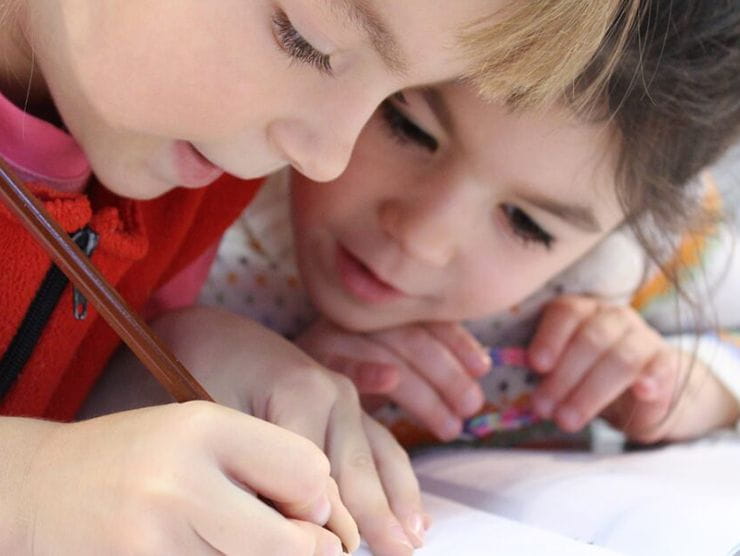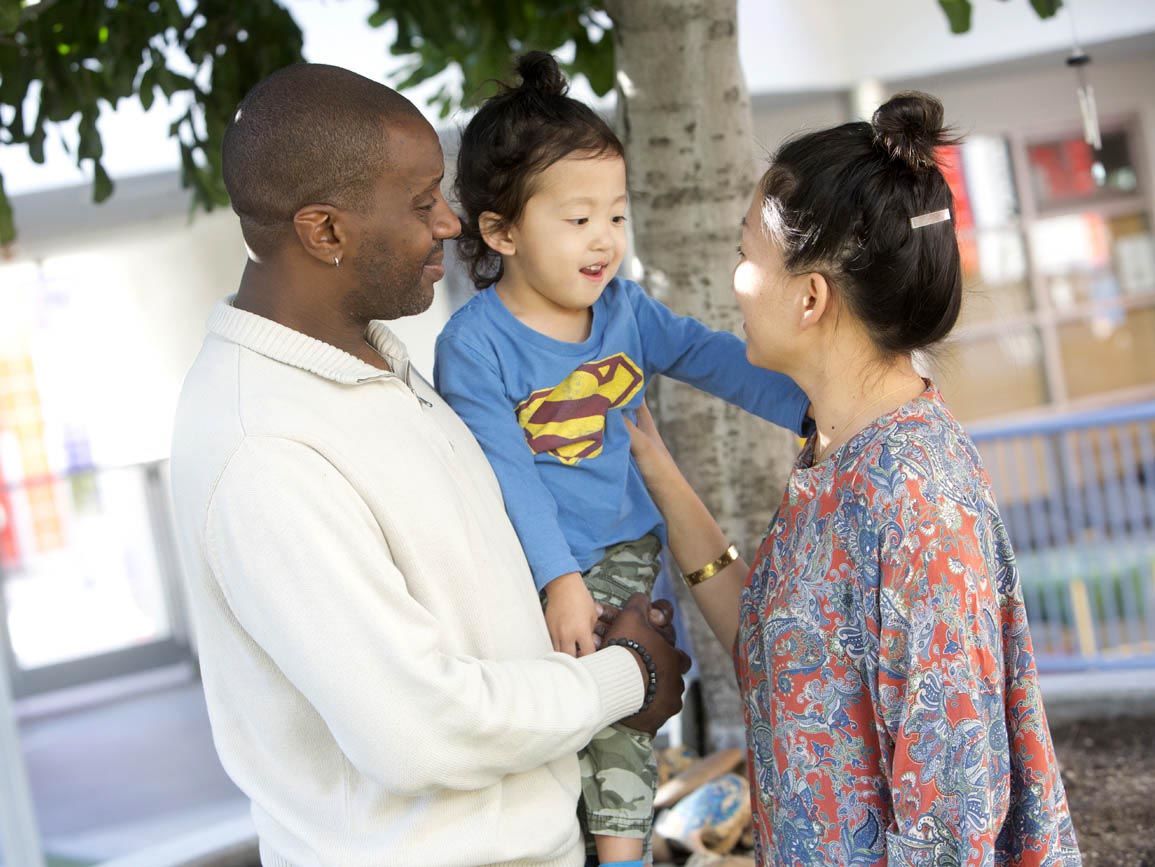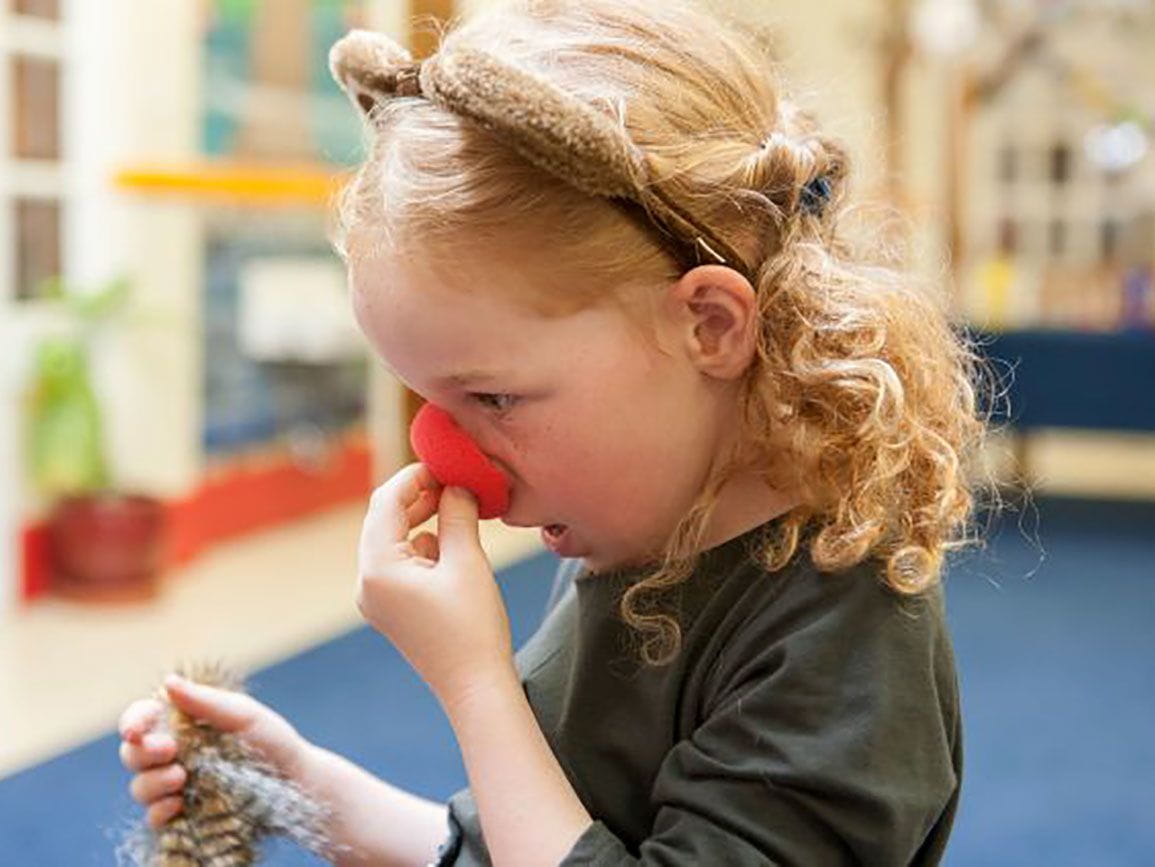From seaweed to grass to blossoms in springtime, the color "green" is often associated with vitality, growth, fertility, and nature, all important qualities of planet earth. Often, a family is referred to as a "green" family when their values and practices focus on respecting all living things, protecting the environment, and conserving our resources. In recognition of Earth Day and every day, families are encouraged to think about all that you already do to respect the planet, and what you might like to include in the future to go green.
Many families strive to inspire and nurture in children a sense of stewardship for the planet. There are many Earth Day activities for families to try, but foremost, we want to teach children to respect all living things, to care for the natural resources upon which our existence depends, and to appreciate nature. Early childhood is a good time for children to develop a sense of appreciation for the planet and all it has to offer. Thus it's important to begin developing sustainable habits, such as protecting the environment and conserving our resources, early in life.
How to Teach Kids to Go Green
The first step in helping kids to go green is to help them develop a deep love for our earth. Children are more likely to want to take care of the natural world if they have a connection to it. To raise earth friendly kids, some families take nature walks, hike in the mountains, walk in the woods, or explore rivers, bays, or oceans. Other families walk around their neighborhoods to enjoy the natural life, pick up litter in community areas, work in a garden, plant seeds in pots, look at foliage and flowers, or use digital cameras to photograph insects. Regardless of whether you live in a city or on a farm, nature surrounds you when you open your doors.
Secondly, families can raise environmental awareness and help children develop green habits by making the Three R’s (Reduce, Recycle, and Reuse) part of their family culture. We are our children’s most important role models. By going green as a family and practicing the Three R’s, we not only make a profound impact on conserving the world’s resources, but we help children develop lifelong dispositions to earth friendly behaviors. Below are a few suggestions to go green by reducing, reusing & recycling:
- Reduce: Even our youngest children can be taught to turn off lights, turn off the faucet while brushing teeth, or draw on two sides of a sheet of paper. Some families reduce their gasoline consumption by walking, carpooling, bike riding, or using public transportation.
- Reuse: Whenever possible, use items that can be reused, rather than disposed. Consider using cloth napkins instead of paper, lunch boxes instead of disposable sacks, and put food in washable containers rather than plastic bags. Some families wrap gifts in reused fabric or their kid’s artwork rather than buying wrapping paper.
- Recycle: In most communities, recyclable paper and plastic can be sorted and sent to recycling centers or curbside recycling can be used. Families can also recycle toys, clothes, and other items by passing them on to friends or donating them to charitable organizations. The wonderful projects brought home from child care or school can be recycled as gifts to appreciative relatives. Food scraps can be composted and recycled back to the earth.
There are many shades of green and no single correct way to go green as a family to raise socially and environmentally aware children. Being a green family means different things to different families, so decide what works and feels right for your family. Every small step helps your child develop lifelong habits, while making an important, positive impact on the earth.
More on Children and the Environment:
- Children and nature is a winning combination. Find out all the benefits of nature for children.
- Earth day art projects are one of many ways to teach your kids about the environment and going green. Get inspired from our parent blogger’s ideas.
- One fun way to teach your kids to respect the earth is to build a garden. Find gardening books for children to get started.





